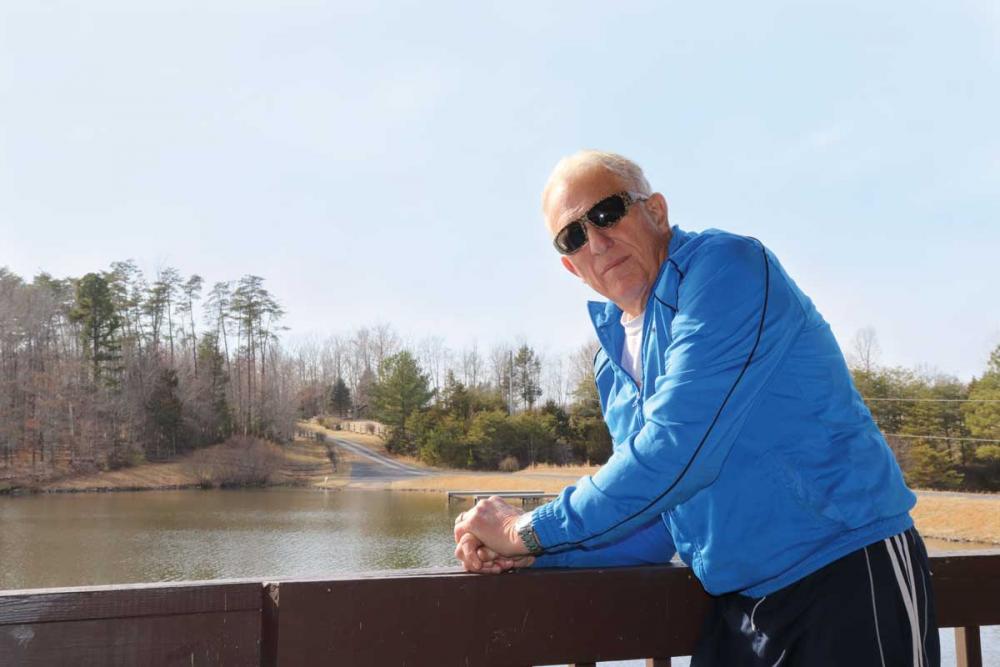Skiing Easy
Editor’s Note: This is a patient perspective feature that appeared in the summer 2021 issue of NEXT magazine. Our online version includes a research feature about the Afib clinical trial and more stories about innovative research happening on the MCV Campus.
***
Freedom from blood thinners means peace of mind when doing what you love.
When competitive water skier John Howell developed chronic atrial fibrillation in his 70s, he started a blood thinner regimen to treat and prevent blood clots and reduce the risk of stroke. But participating in sports can be dangerous for someone taking anticoagulants, which can cause excessive bleeding. One spill from his skis and Howell could bleed uncontrollably.
“You want a nice, efficient heart when you’re exercising,” he said. “Unfortunately, when you ski, you can take some dramatic crashes that can be life-threatening.”
After four or five years on the drug Eliquis, Howell, 80, wanted his AFib cured. Twice he tried cardioversion, a procedure that can restore normal heart rhythm by applying a controlled electric shock to the heart to break the pattern of abnormal electrical signals. After each time, however, his AFib returned.
Out of options, Howell’s cardiologist in Fredericksburg, Virginia, referred him to VCU Health Department of Cardiology chair Dr. Kenneth Ellenbogen, whom they were confident could help the retired dentist. Pauley Heart Center’s Atrial Fibrillation Program offers a full spectrum of innovative therapies and treatments and is focused on meeting the individual needs of each patient. Because Howell had a high risk of stroke, Dr. Ellenbogen recommended he receive a WATCHMAN implant. The parachute-shaped device is designed to keep harmful blood clots that form in the left atrial appendage from entering the blood stream and potentially causing
a stroke.
The WATCHMAN is permanently placed at the opening of the left atrial appendage. The procedure requires an overnight stay in the hospital, and recovery takes about 24 hours.
“I was all for having it done,” Howell said. “I have the highest regard for Dr. Ellenbogen and felt like I was in really good hands.”
He had the procedure done without incident. “Then, I went about my life playing tennis and water skiing,” said Howell, a multi-time Eastern regional timed slalom champion.
“It was a relief being on blood thinners because it cut back on my chance to have a blood clot that could go to my brain and have a tragic ending, but because I’m so active, the blood thinners could have created their own tragic ending,” he said. “The WATCHMAN allows me to get off the blood thinners and peel away that layer of concern.”



